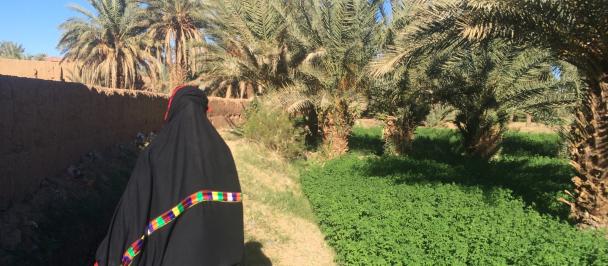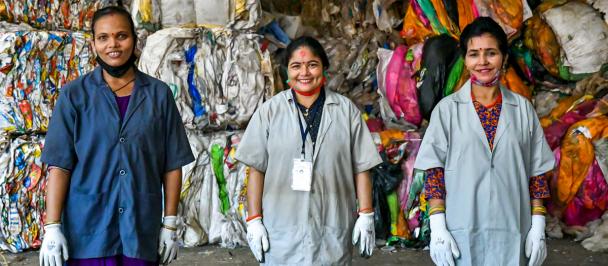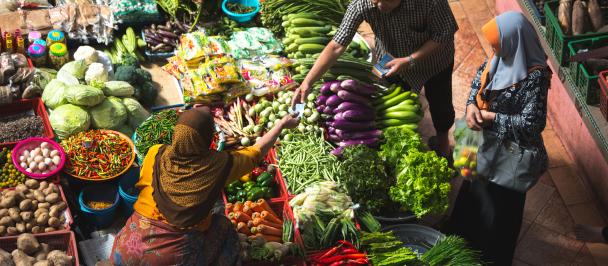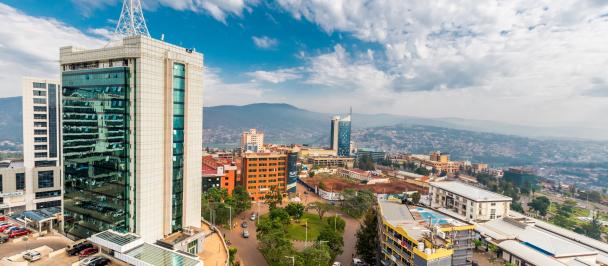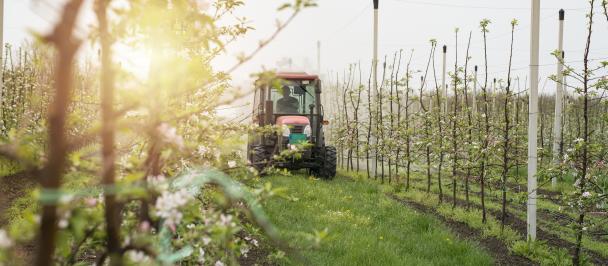The waste puzzle: from experimenting small to moving systems
February 22, 2024
Waste is hardly mysterious. In much of the developing world and even much of the developed world, waste is a source of everyday frustration – but also something lavishly produced without much thought, both in households and the private sector. At the same time, anyone and their mother can make a list of top waste management problems in their community or industry in less than 60 seconds. The only problem is that hardly anyone is ever asked.
This is a story of how the Accelerator Lab in Bosnia and Herzegovina asked many people from different constituencies the same questions over a period of time, why and how we did it and what the journey from a pixelized issue-based view to a complete system understanding looked like for us.
Step 1: Signals, pixels and grains
The Lab was established in late 2019 – by the end of that year, we already knew that much of our future work on creating new value propositions for UNDP in Bosnia and Herzegovina would be linked to resource use through new approaches to development, whether through measuring environmental footprint, exploring consumption patterns or promoting sustainable lifestyles and business models. All of this was new to the Country Office’s programming, which was initially oriented towards more traditional, more familiar, and large-scale development work. However, our horizon scanning showed that the momentum was there, and we dedicated our first experimentation efforts to single-use plastics experimentation and – at the request of a city administration - to the problem of food waste in the capital city, Sarajevo.
In short, our pre-pandemic work concentrated on:
a) understanding how and why single-use plastic is used and disposed of in collectives such as companies or school buildings, and what would be needed to effectively end this use through a codified approach – a practical step-by-step toolkit to help the workspaces become plastics-free. The experimentation journey is illustrated below:
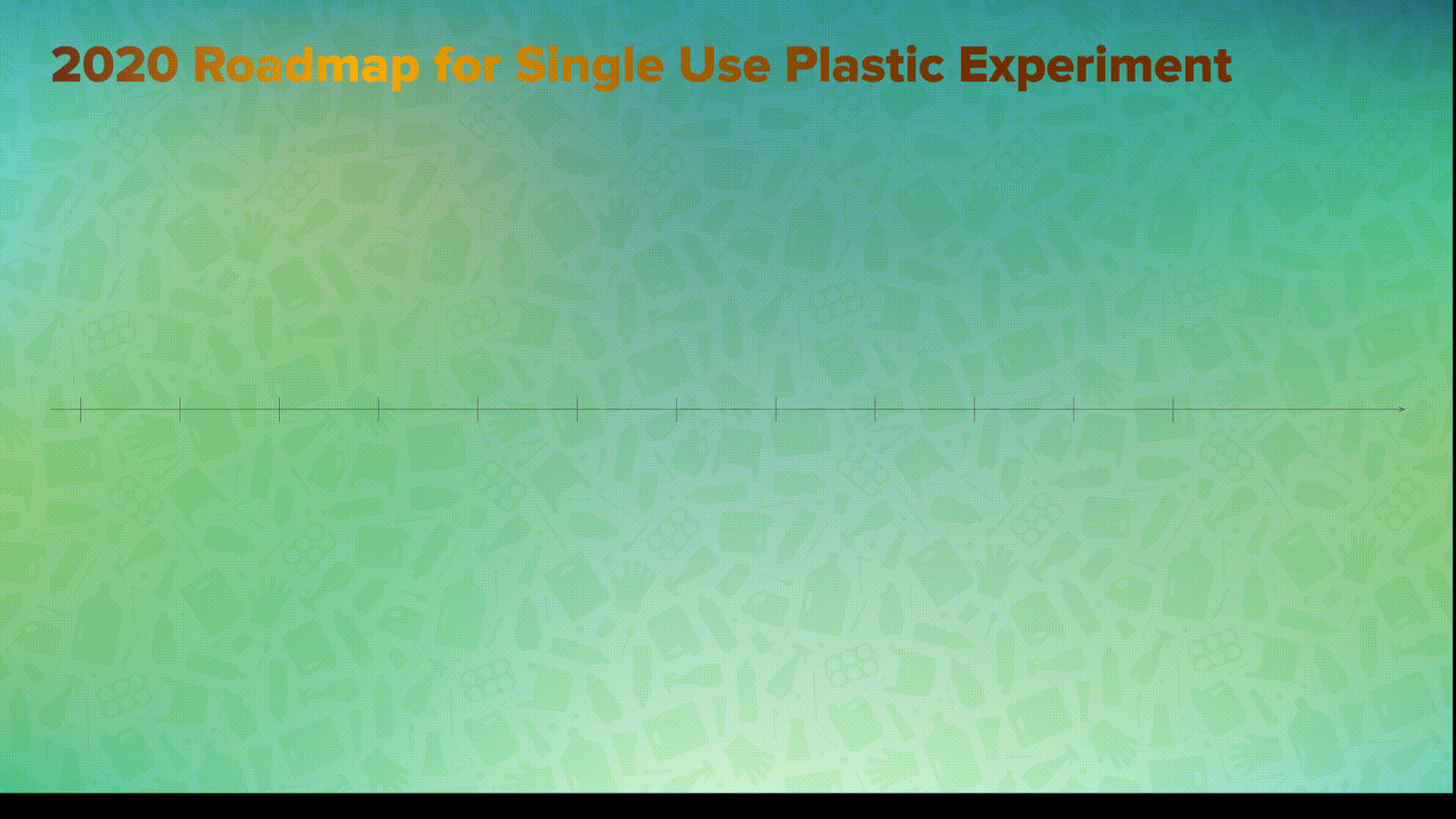
As an excerpt from this experiment on how to make workspaces (including the UN House) plastic-free, here are some early findings on behaviour and attitudes towards plastic that our team captured at the time:
b) testing public awareness and interest in doing something about food waste, combined with some analytical work and utilisation of it all through a city-focused policy document on food loss and waste prevention. The journey initially looked like this:
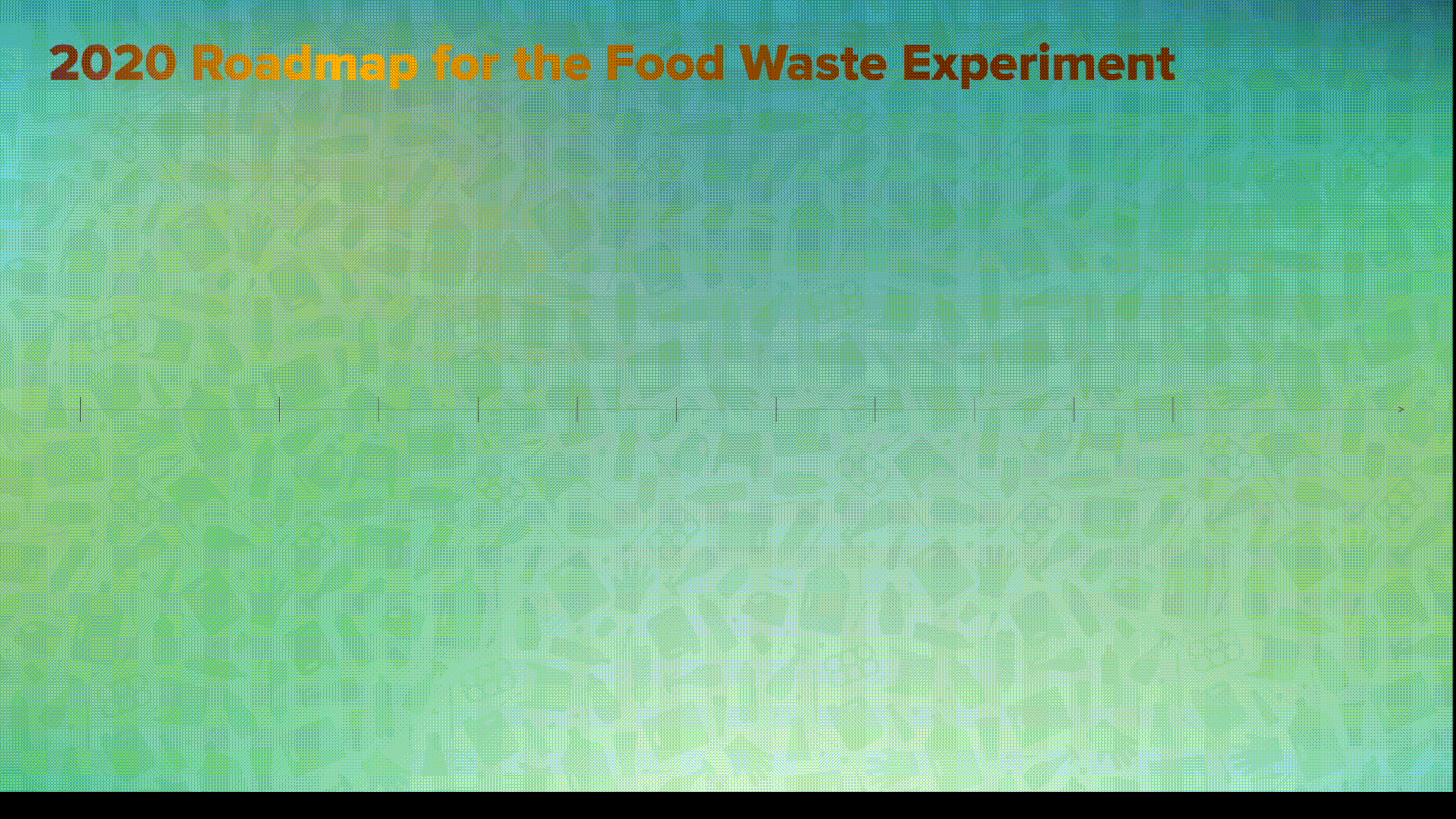
We didn’t know it at the time, but this early, pixelated and almost unintentional focus on waste was the beginning of a multi-year learning journey that evolved into a full-scale system work.
The experiment here started with an innovation challenge, “Food is Not a Waste”, which allowed us to learn more about the country’s innovation ecosystem and also take the public pulse on the issue of food loss and waste. We learned that there are important signals on the issue, including hyperlocal solutions and activists, but we needed much more insight to make sense of the root causes and the scale of the problem.
In parallel, UNDP BiH Accelerator Lab was lucky enough to be accepted into the 2020 Collective Intelligence Design Studio run by Nesta for a select group of UNDP Accelerator Labs working on waste management practices. This process enabled our team to apply the collective intelligence methodology to better understand municipal waste management in places of interest and, consequently, deep dive into community perceptions of waste and asset mapping.
We didn’t know it at the time, but this early, pixelated and almost unintentional focus on waste was the beginning of a multi-year learning journey that evolved into a full-scale system work, perfectly depicting the AccLabs’ learning cycle as described by the Network’s Learning Designer in early 2020:
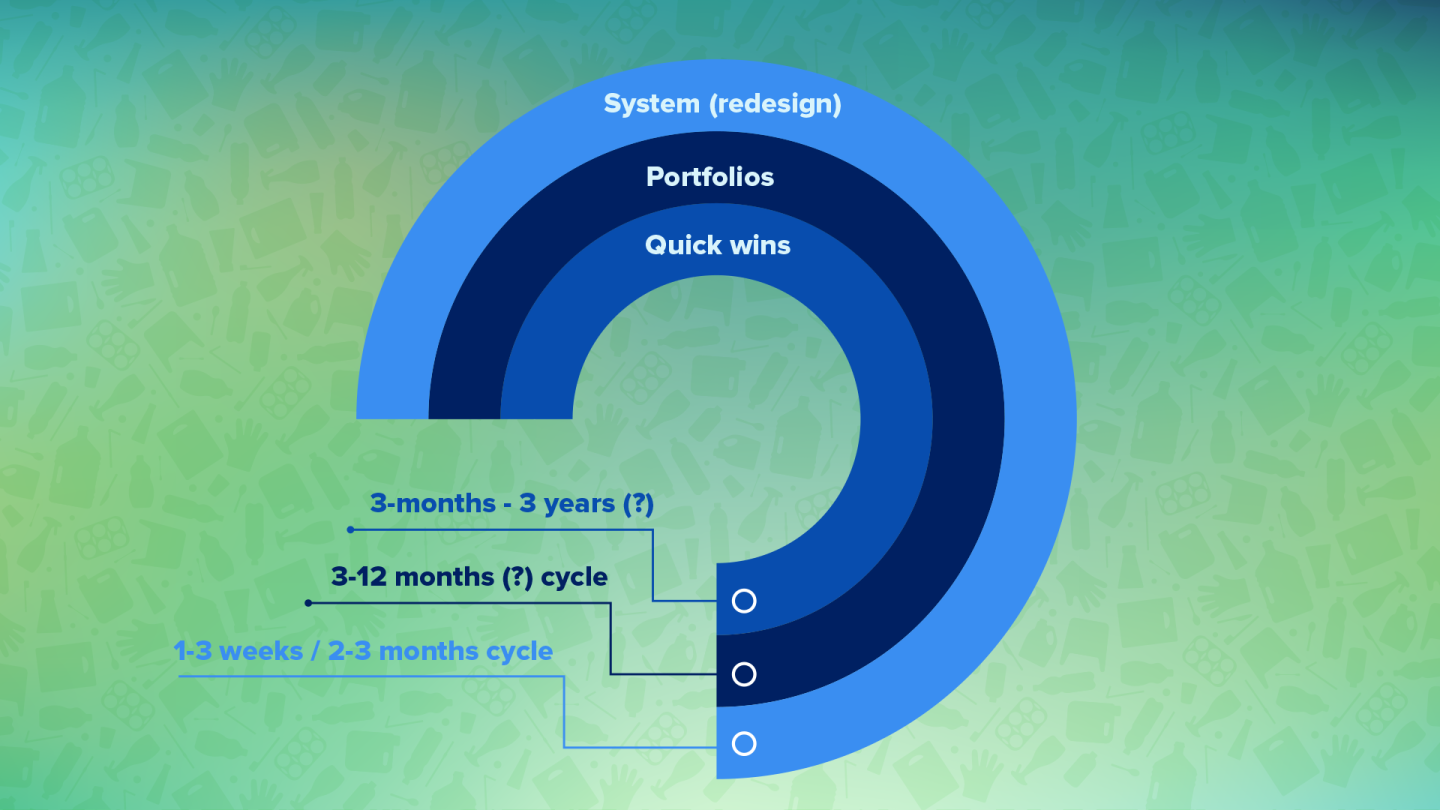
Step 2: A sketch of the system
In 2020, the global pandemic shifted the Lab's focus and drew attention to new priorities. We seized the opportunity presented by the restart of the world and expanded our experiments into the recovery efforts. Building on the previous year's interest in resource use and waste management, a rapid three-month intervention aimed to explore circular economy models for the country's post-Covid economic recovery. In particular, it explored how small and medium-sized enterprises in the local market could reduce or eliminate waste streams from production or use waste as a resource. The results of the practical work with five local businesses selected through a public call have fundamentally reshaped our understanding of private sector engagement in the circular economy.
After two years of launching our pilot projects, we assessed their impact on individual companies. The results showed a noteworthy return on investment in most targeted processes, especially in waste prevention and reuse, resulting in significant environmental benefits. Specifically, the intervention supported the reuse of over 200 tons of different secondary materials and, on average, caused energy savings of some 12%.
Our work on circular practices within the private sector and industrial waste prevention was complemented by an analysis of the policy landscape regarding plastic waste. Our goal was to contribute to proactive policy-making by reconnoitring how the EU’s Single-Use Plastics Directive would affect the local economy. This exploration also featured case studies of specific companies dealing with plastic packaging, offering practical insights into the lack of preparedness of the local economy for the substantial shift in resource use and treatment in the European Union.
Simultaneously, what began as small-scale experimentation on food losses and waste evolved into substantial research and policy development efforts. The Lab established the Sarajevo Food Lab, an informal network of stakeholders interested in the subject. We collaborated with the Sarajevo City administration and the Czech Republic Development Cooperation to craft the first policy and action document on the prevention and reduction of food waste in the country.
We also supported the first estimation of food losses along the value chain of two agri-products, to have evidence behind the statement that most food waste actually happens at the end of the value chain, particularly in households. We also produced a strategic note aimed at systemically improving food waste management in the country.
One of the key recommendations was the establishment of the food bank, a previously non-existent facility for food redistribution in the country. This realization prompted a shift in our perspective, leading us to recognize another aspect of the food waste issue – food poverty. What began as small resource-use experimentation swiftly transformed into a wider matter of social justice.
External recognition of our work on food waste work was also notable: Our pioneering exploration of the food rescue models and mapping of food loss and waste in collaboration with the City of Sarajevo was recognised by the European Environment Agency as the only effort in this sense featured in the 2021 National Waste Prevention Programmes overview for Bosnia and Herzegovina.
However, I personally believe that the biggest contribution to the outline of the waste management system in the country came from the implementation of the Innovation Challenge on zero-waste neighbourhoods. Over the course of six months in 2021 we closely worked with five community-based organisations from across the country to explore how communities perceive and treat their waste, and how hyperlocal changes in waste management can be achieved.
It turns out that even small investments in inclusive and novel approaches combined with close attention to local needs really do resonate with communities – as noted previously, everyone is aware of the waste problem, but few can do anything about it on their own. Through the innovation challenge, we have created a local activist network that collectively learned about the behaviours and practices behind waste management problems and shared experiences from implementation, thus creating real change that was sustainable.
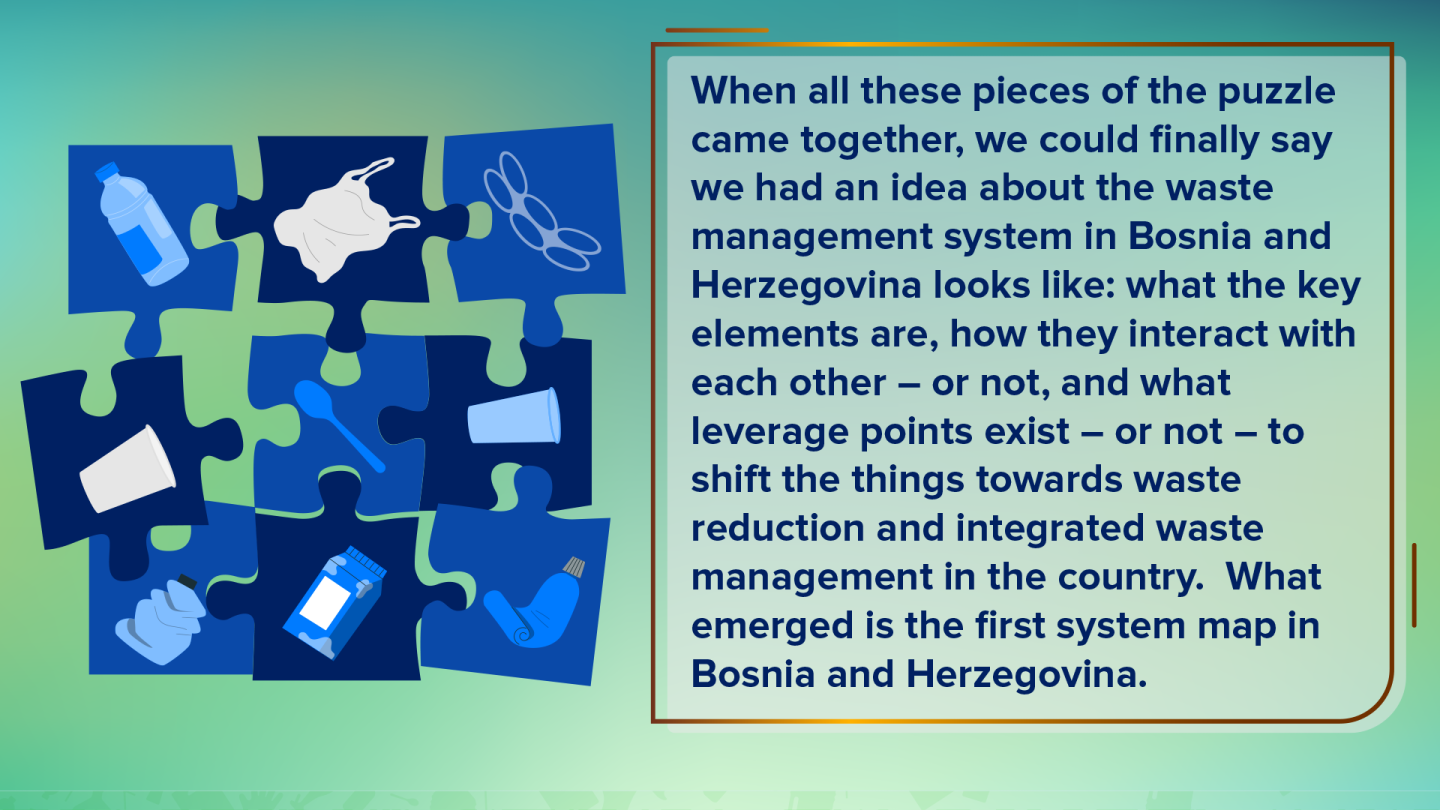
What emerged is the first system map on a development issue in Bosnia and Herzegovina.
After a few years of reflecting on how society and the economy use or waste the limited resources, we can say that the Network’s learning designer was right: shaking the system starts with a few quick wins.
Part 3: Adding colour to the painting of our system through a portfolio approach
What better way to expand our experiments and apply the knowledge of the system than to integrate with the rest of the Country Office in a deliberate and structured portfolio development? UNDP in Bosnia and Herzegovina embarked on a journey with the Chora Foundation in early 2023 to introduce the portfolio approach through jointly devising a circular economy portfolio, a process that – needless to say – was significantly informed by the previous three years of the Lab exploring circularity and waste management at a high level of granularity.
The portfolio resulted in seven concrete intervention areas targeting a move towards circularity for specific industries in the country. In 2023, upon the portfolio’s finalisation, the teams were able to “activate” two of these interventions immediately. One of them was explicitly aimed at – you’re guessing - expanding the experimental work on general waste management in the country by exploring and connecting with the local ecosystem, digitizing waste-related reporting and, maybe most importantly, mapping the material flow in selected large manufacturing companies to learn more about how waste can become a resource for the economy. The results shed entirely fresh light on resource use in the country and the transition potential of the local economy: we managed to devise ways in which internal and external platforms for re-imagining the waste management system in the country can be established and their collective intelligence harnessed; we engaged artists into the visioning of the wasteless world and we learned where the industry levers lie to accelerate the transition towards a circular economy.
The portfolio approach also proved to be a valuable tool to connect with all parts of the house and consequently to share much of the research and insights generated by the Lab with larger teams. After a few years of reflecting on how society and the economy use or waste the limited resources, we can say that the Network’s learning designer was right: shaking the system starts with a few quick wins.

 Locations
Locations




